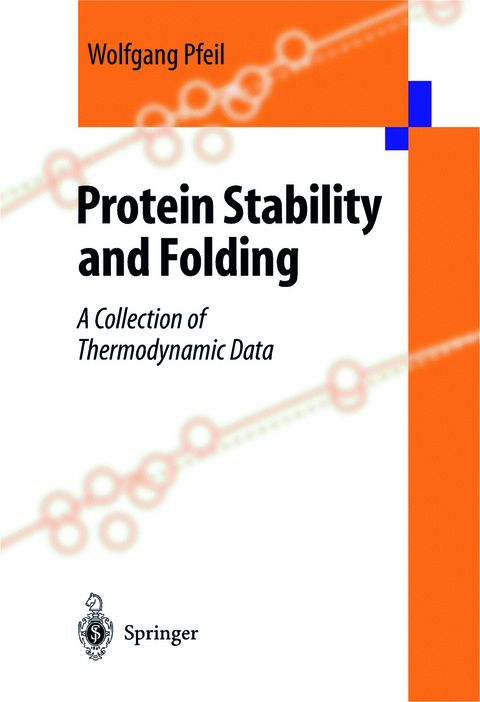
Protein Stability and Folding
A Collection of Thermodynamic Data
Seiten
2012
Springer Berlin (Verlag)
9783642637162 (ISBN)
Springer Berlin (Verlag)
9783642637162 (ISBN)
Protein folding remains one of the most exclusive problems of modern biochemistry. Structure analysis has given access to the wealth of the molecular architecture of pro teins. As architecture needs static calculations, protein structure is always related to thermodynamic factors that govern folding and stability of a particular folded protein over the non-organized polypeptide chain. During the past decades a huge amount of thermodynamic data related to protein folding and stability has been accumulated. The data are certainly of importance in dechiffring the protein folding problem. At the same time, the data can guide the con struction of modified and newly synthesized proteins with properties optimized for particular application. The intention of this book is a generation of a data collection which makes the vast amount of present data accessible for multidisciplinary research where chemistry, phy sics, biology, and medicine are involved and also pharmaceutical and food research and technology. It took several years to compile all the data and the author wishes to thank everyone who provided data, ideas or even unpublished results. The author is, in particular, indebted to Prof. Wadso (Lund, Sweden) and IUPAC's Steering Committee on Bio physical Chemistry. Furthermore, support by the Deutsche Forschungsgemeinschafi (INK 16 AI-I) is acknowledged.
Many biochemists, biotechnologists, food scientists and biophysicists work with proteins. They all have problems with the stability of proteins and thus difficulties in handling them. This data collection helps the scientist to choose the right temperature and appropriate solvent when dealing with a particular protein.
1 Evaluation of the approaches for the determination of conformational stability and related thermodynamic quantities.- 2 Comments on the tabulated data.- 3 Why to prefer complex thermodynamic functions.- References.- Table 1. Gibbs energy change-molarvalues.- Table 2. Enthalpy and heat capacity changes-molar values.- Table 3. Enthalpy and heat capacity changes-specific values.- References (Tables 1-3).- Index of Proteins.
| Erscheint lt. Verlag | 16.10.2012 |
|---|---|
| Zusatzinfo | XIII, 658 p. |
| Verlagsort | Berlin |
| Sprache | englisch |
| Maße | 155 x 235 mm |
| Gewicht | 1006 g |
| Themenwelt | Medizin / Pharmazie ► Pflege |
| Naturwissenschaften ► Biologie ► Biochemie | |
| Naturwissenschaften ► Physik / Astronomie ► Angewandte Physik | |
| Technik ► Umwelttechnik / Biotechnologie | |
| Schlagworte | Protein • Protein Folding • proteins • stability • Temperature |
| ISBN-13 | 9783642637162 / 9783642637162 |
| Zustand | Neuware |
| Informationen gemäß Produktsicherheitsverordnung (GPSR) | |
| Haben Sie eine Frage zum Produkt? |
Mehr entdecken
aus dem Bereich
aus dem Bereich


